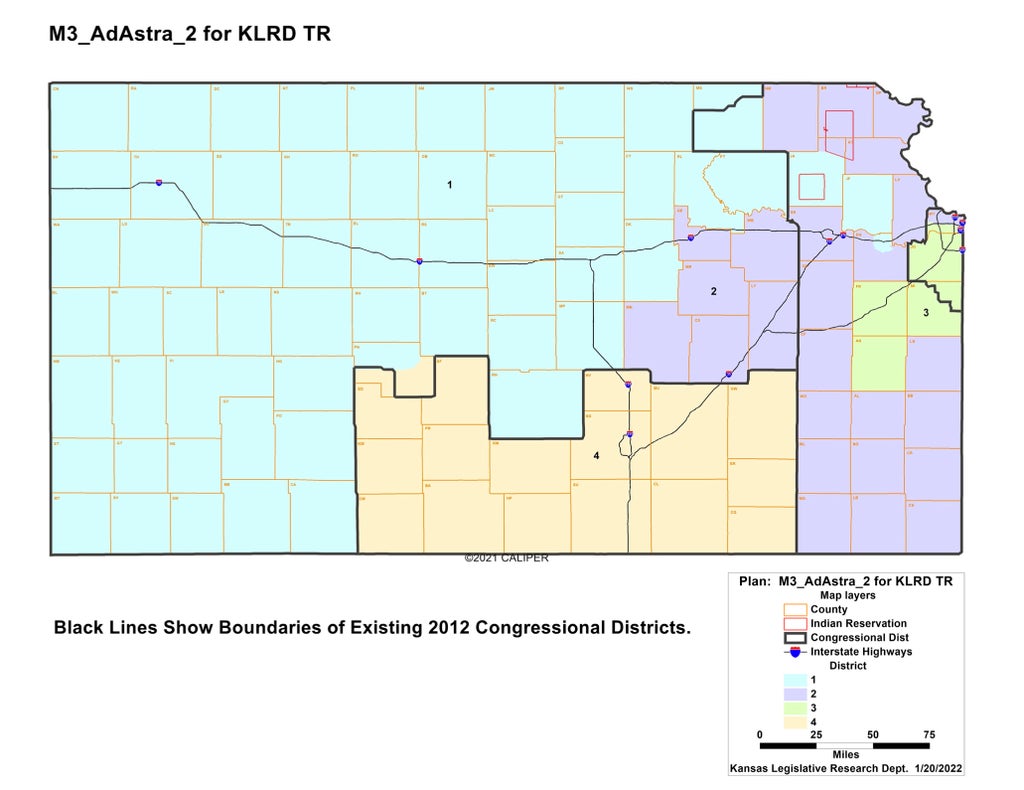
Republican legislators in Kansas on Wednesday overrode the Democratic governor's veto of a redistricting plan that politically hurts the state's only Democrat in Congress, likely plunging Kansas into a national legal brawl amid the contest for control of the U.S. House.
The 85-37 vote in the Kansas House overturned Gov. Laura Kelly s veto of a map that splits the state's side of the Kansas City area between two districts, making it harder for U.S. Rep. Sharice Davids to win reelection this year. It also moves the liberal northeast Kansas enclave of Lawrence — home to the main University of Kansas campus — into a district with conservative central and western Kansas communities some six hours away by car.
The Senate overrode Kelly's veto Tuesday, so the new lines will become law by Feb. 17. Republican majorities in both chambers are larger than the two-thirds needed to override a veto.
Attorneys are expected to file lawsuits on behalf of aggrieved voters. Even before the House vote, prominent Democratic attorney Marc Elias, who has pursued lawsuits in states including Georgia, North Carolina and Ohio, tweeted a promise that the new Kansas boundaries would be challenged.
“Who is surprised the GOP has targeted Kansas' only female member of Congress?” Democratic Rep. Vic Miller, of Topeka, said in explaining his no vote. “Who is surprised the GOP has targeted the only person of color to represent Kansas in Congress in almost 100 years?”
While some conservatives in neighboring Missouri have acknowledged a desire to use redistricting to help Republicans pick up congressional seats, Kansas Republicans are far more guarded. They have said repeatedly that their plan is driven by court mandates to make all four districts as equal in population as possible.
“It's a fair map,” said House Majority Leader Dan Hawkins, a Wichita Republican.
Federal judges have reviewed changes in Kansas' congressional district boundaries for decades and drew them in 2012, when the Republican-controlled Legislature couldn't pass any plan. The U.S. Supreme Court ruled in 2019 that complaints about partisan gerrymandering are political matters and not for the federal courts to settle, but Democrats will argue that the map is unacceptable for other reasons, including how it reduces the number of Black and Hispanic voters in Davids' district.
Some Democrats also want to get the congressional map before the Kansas Supreme Court, which traditionally hasn’t dealt with one. Their hope would be a ruling that the state Constitution limits or prohibits political gerrymandering.
The new law takes from Davids parts of the northern Kansas City area where she performs the best and moves them into the neighboring 2nd District. The map then shifts Lawrence from the neighboring 2nd into the 1st District of western and central Kansas.
GOP leaders repeatedly argued that Davids would have won reelection had the new lines been in place in 2020.
“If the numbers show that she would still win that map, does it really target her?" Hawkins said.
Democrats and Kansas City-area officials argued that courts won't accept the new redistricting law because it reduces the clout of minority voters in Davids' district.
But Republicans countered that the map increases the number of Black and Hispanic voters in the 2nd District, giving them more clout.
____
Follow John Hanna on Twitter: https://twitter.com/apjdhanna







